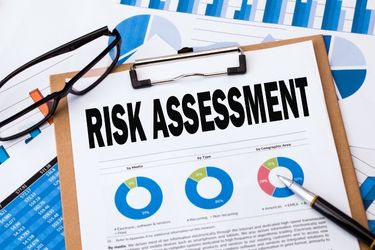

Limiting access to your sensitive data is a must in this information-heavy society that we live in today. Protecting that data is even more essential if you're running a small business. Everyone from your employees and vendors to your customers expects you will treat their information with the same security as yours. Anything less can lead to serious monetary penalties and severe and lasting reputational damage.

Here at EMA, we do more than show you how to create engaging posts on social media. As a repository for all things small business, we felt that compiling an essential primer on creating and implementing a small business cyber security plan would be worthwhile for this entry. Just as all business decisions should be planned and executed as part of an overall master plan, your cyber security procedures should also be tailored to your specific business model. Implementing these steps as a part of a full-fledged cybersecurity plan is doable for even a small business. It will pay dividends even if it does nothing less than save you time by eliminating duplicated effort or small oversights.
Now that we've covered why cyber security is important and why a formal plan is integral to your success, where do you start? These next few items should take place simultaneously or as near to that as possible. No one element is more important than another, and you need to have them all solidly identified before developing the actionable items that we'll get to a bit later.

What segments of your business are the most vulnerable to cyber threats? If you don't know where your weaknesses are, you aren't able to harden them effectively. By analyzing your vulnerabilities, you can better tailor your plan to fit your enterprise's most common attack vectors. Some of the most common attack vectors for cybercriminals are the following:
Knowing what sensitive information you have stored in what systems and the devices that have access to those systems is another critical benchmark towards building an effective small business cyber security plan. Limited access networks are great, but if your staff access those networks from outdated mobile devices or with an unpatched operating system, then the access controls are extremely limited.
Business owners may not always be aware of the breakdown of desktops versus mobile devices or even network systems containing protected business data. Even small businesses may place most of the responsibilities regarding cyber security on a few select employees or even a third-party vendor. You have to include these parties in the development stage of your business cyber security plan to get an accurate representation of the path ahead of you.
Your information-gathering stage is complete, and it's time to develop an action plan. These next steps will go beyond your basic security practices and elevate your security posture to a much higher level.

No matter the attack vector, weak password security will compound any issue into something much worse. You should implement password requirements, including length, special characters, numbers, capital, and lowercase text, and strongly encourage a passphrase instead of just a single word. As a best practice, you could provide a password manager application that randomly generates passwords, stores them securely with encryption, and even allows additional features like preventing the reuse of passwords across networks or applications. Multi-factor authentication should be mandatory.
Firewalls, antivirus, anti-malware programs, and anti-spyware programs are all key pieces of the puzzle. This won't absolve your staff of the need to be careful and educated on cyber security. Still, an additional layer of defense with push notification warning capabilities can allow you to detect a data breach in the early stages and limit the damage. This is also a good time to secure your wi-fi networks with passwords and ensure they are running at least WPA2 protocols. Regardless of the programs you choose to apply, you must make sure that software updates are regularly installed, as are any provided patches, to ensure that known vulnerabilities can't be exploited. You can't just install security apps and walk away, no matter what some developers may promise.

An educated and engaged staff will do wonders for your cyber security posture. It isn't enough to tell them what the rules are. Having a crew that understands the reasons behind security protocols and procedures only increases the chances that they will follow policy voluntarily and be on the lookout for early warning signs of a potential data breach. Training should be interactive, realistic, and ongoing, not just something pushed out to check a box or fulfill the minimum requirements.
It's not a matter of if but when. Over 43% of cyber attacks target small businesses, so it only improves your chances of success if you look at a data breach as a likely outcome. That doesn't mean that you shouldn't do everything in your power to secure customer information, but accepting that a cyber incident is going to happen allows you to establish concrete steps to take in response to such an event. Review this response plan with your employees, run exercises of common breaches, regularly update contact information, and adjust steps to comply with changes in staff roles, responsibilities, and changing business practices. This will help limit damage from any adverse event and help mitigate any downtime you might experience due to an attack.
A small business cyber security plan is not a one-and-done project. This is a fluid document that requires regular input, updating, and revision, and it should be treated as equally important to your business plan as a whole. For more tips on managing your business more efficiently, subscribe to our weekly small business newsletter. At E-Marketing Associates, we help small businesses grow.
Even small firms handle sensitive customer, employee, and vendor data. A written plan helps identify vulnerabilities, set clear policies, and avoid costly fines and reputation damage. It guides consistent action instead of ad-hoc fixes, saving time and money.
A cyber risk assessment identifies the systems, data, and processes most vulnerable to threats like phishing or ransomware. Review hardware, software, access points, and vendor connections. Perform one annually or whenever major technology or staffing changes occur.
Begin with strong, unique passwords managed by an encrypted password manager, mandatory multi-factor authentication, network firewalls, and reputable antivirus/anti-malware software. Secure Wi-Fi with WPA2 or better and keep all applications patched and updated to close known vulnerabilities.
Staff who understand threats recognize suspicious emails, report anomalies early, and follow security rules without shortcuts. Regular, interactive training builds a security culture, reducing human-error breaches that tools alone can't stop.
An incident response plan should list detection steps, internal and external notification procedures, data isolation tactics, recovery actions, and post-incident review. Include contact info for key staff, vendors, and regulators, and conduct drills to keep it current.